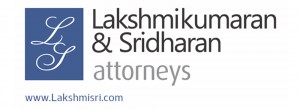In the course of just a year, times have changed and we have journeyed from a sense of normalcy to absolute anomaly. The outbreak of the pandemic has brought the world to an abrupt halt. During such dire circumstances, when even the government is short of resources, companies have stepped up to extend support by establishing interim relief facilities, making monetary contributions, setting up oxygen plants and distributing essential commodities to relieve the situation. By the same token, numerous companies are fulfilling their corporate social responsibility (CSR) obligations by way of such activities. The legal position regarding the eligibility of companies to use input tax credits (ITC) for such activities is a grey area and the problem is whether companies can use ITCs or whether they have to bear the additional burden.

Lakshmikumaran & Sridharan
On the brighter side, to incentivise such companies, the states of Haryana and Gujarat have recently issued notifications that are intended to reimburse companies engaged in distributing essentials they have either procured domestically or imported, the goods and services tax (GST) they have paid. Although these are commendable initiatives, the question that arises is whether they provide a safety net for these companies, or can the companies also claim benefits available under the GST framework.
Under the current GST framework, the prime requirement for a person to claim ITC on goods or services is that they should be provided in the course or furtherance of business. The term is not defined in statute, but courts have defined it as anything done to assist or promote the interests of a business. In view of its wide interpretation, not only a profit activity but a non-profit activity directed towards business would also be covered by the scope of this phrase. However, the benevolent and voluntary nature of the act, undirected by any authority casts a doubt on the availability of ITCs.
The Customs Excise and Service Tax Appellate Tribunal in allowing a credit of service tax, held that CSR was mandatory for companies, and considered any activity undertaken towards fulfilling it to be a business activity. Therefore, it is possible to take the view that companies fulfilling their CSR obligations may claim ITC on services supplied to them as they are in the course or furtherance of businesses and are not otherwise disallowed.

Principal associate
Lakshmikumaran & Sridharan
The position in the case of goods, however, is increasingly complex. Although the GST law allows ITCs on supplies received in the course or furtherance of business, it also sets out several cases where such credits cannot be claimed. In particular, it disallows ITCs where goods are disposed of by way of gifts or free samples. The challenge faced by companies is whether they would be disallowed from claiming ITCs on goods donated in these dire straits. For companies, it is important to ascertain if such a donation is deemed to be a gift or whether such donations can be termed voluntary when they are undertaken to fulfill CSR obligations. Are companies able to argue that they should not be prevented from claiming the benefit of ITCs, considering that CSR is mandatory rather than voluntary?
For companies that fall outside of the CSR mandate, any donation of goods made by them would be voluntary in nature and may preclude them from claiming ITCs. For their benefit, the provisions introduced by the states of Haryana and Gujarat would allow them to claim reimbursement of GST on such donated goods.
The notifications introduced by the Haryana and Gujarat state governments are indeed a welcome step that prevents this ambiguity from becoming an obstacle to the relief that companies are providing during challenging times. It is also likely that more state governments will follow suit to incentivise companies. Nonetheless, using these provisions might be less beneficial for companies that can otherwise claim ITCs. The incentives provided under these notifications are subject to conditions and are limited to certain goods and specific situations. The benefit of ITCs, if they are available, can be claimed without being subject to such limitations and, most importantly, are not restricted to times of covid-19. Thus, it is important that companies first examine their eligibility for claiming ITCs, and only afterwards take advantage of these incentives from local provisions that offer similar benefits.
Kapil Kumar Sharma and Shubham Vijay is a principal associate at Lakshmikumaran & Sridharan

Lakshmikumaran & Sridharan
B-6/10 Safdarjung Enclave
New Delhi – 110 029
India
Contact details
Tel: +91 11 2619 2243 / +91 11 4129 9900
Email: LSDEL@lakshmisri.com
www.lakshmisri.com



























